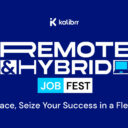Avoid These Answers That Might Ruin Your Interview

You’ve applied for a job, you’ve sent in your resume, and the recruiter sends you an email saying, “You have been shortlisted for the company’s role. Your interview is scheduled for…”
After scanning through mounds and mounds of applications, the hiring team decided that you might just fit the bill of the potential job. What now? Interviews are of great importance when it comes to landing your next job opportunity. Though we know what to say and what to do, do we know about the greatest interview no-nos that’ll most likely lessen your chances of getting into the company?
In this article, we’re giving you the rundown on answers you should avoid during an interview.
1 Saying negative things about your past job
When asked about lessons you learned from your previous work, make sure to answer in a professional manner. Don’t bombard the interviewer with qualms and mean remarks you may have about past bosses, colleagues, and projects. Instead, highlight what you’ve gained from being put in challenging situations and dealing with a diverse set of people. Highlight how you’ve grown due to your previous job instead of criticizing it.
2 “I don’t know”
Oftentimes, a recruiter will ask if you have experience in a specific task to gauge where you’re at with your skill set. They will ask how knowledgeable you are with regards to an important part of the job. By saying, “I don’t know,” it gives off the impression that you don’t care and that you won’t even bother trying to know. Respond with, “To be honest, I am not well-versed in that task. But, I am definitely willing to learn more about it.” Show your eagerness to tackle new objectives for your new job.
3 “Just look at my resume. It’s all on there.”
Whether or not the recruiter’s question can be answered by looking at your resume, it’s always a good idea to still verbally describe your credentials. When an interviewer asks about where you went to school, what your first internship was, and what tasks you had to fulfill, don’t instruct the interviewer to simply look at your resume. Think of this as an opportunity to expound upon what you’ve done in the past career-wise. This will also test your critical thinking skills, as well as your ability to prove that you can substantiate everything on your resume.
4 “My weakness is that I’m a perfectionist.”
This has to be one of every interviewer’s biggest pet peeves. While being a perfectionist can surely be someone’s weakness, this answer can rub people the wrong way. It’s similar to performative humility in that you’re trying to make yourself seem less than by making a greater than statement about your weaknesses. Just be honest with your interviewer and yourself: answer what your weakness is and answer it thoroughly. Transparency is greatly appreciated in the workplace.
5 Unsolicited advice
An interviewer may ask how the company you’re applying for can improve. “What aspects do you think we can work on? How can we gain more clients? What works and what doesn’t?” These are questions a recruiter can ask to see how much you know about the company and what it stands for. What you shouldn’t do, though, is give insights without being prompted. Don’t interrupt the flow of the interview by saying, “I think our company should/shouldn’t do…” Wait to be asked, and politely answer.
6 “I don’t have any questions I need to ask.”
Sure, sometimes you may really not have any unanswered questions. Throughout the interview, though, try to think of at least 1 meaningful question that you can ask the interviewer regarding the job, the workflow, the culture of the company — anything that shows that you were being an active listener. If you don’t have any questions at the moment, make it known that you will be asking further questions via email correspondence or through future meetings with the recruiter.
7 Filler words
“Umm…” “Like…” These words — paired with disinterested body language — can tick some interviewers off. Instead of going into the interview confused and without a concrete plan, do your best to prepare. Ask for job interview advice from trusted people, and check out articles on most-asked interview questions. Do what you can to structure what you want to say.
At the end of the day, a job interview exists to show the company that you are capable of undertaking the role that’s being offered. So do your research, plan ahead, prepare your answers, and avoid what needs to be avoided. As Benjamin Franklin once said, “By failing to prepare, you are preparing to fail.” Do your best and know what not to do!
–
Kalibrr is a recruitment technology company that aims to transform how candidates find jobs and how companies hire talent. Placing the candidate experience at the center of everything it does, we continue to attract the best talent from all over, with more than 5.5 million professionals and counting. Kalibrr ultimately connects these talents to companies in search of their next generation of leaders.
The only end-to-end recruitment solutions provider in Southeast Asia, Kalibrr is headquartered in Makati, Philippines, with offices in San Francisco, California, and Jakarta, Indonesia. Established in 2012, it has served over 18,000 clients and is backed by some of the world’s most powerful start-up incubators and venture capitalists. These include Y Combinator, Omidyar Network, Patamar Capital, Wavemaker Partners, and Kickstart Ventures.

Every week we produce new insights perfect for fresh graduates like you. Subscribe to our email newsletter.





Belum ada komentar yang tersedia!